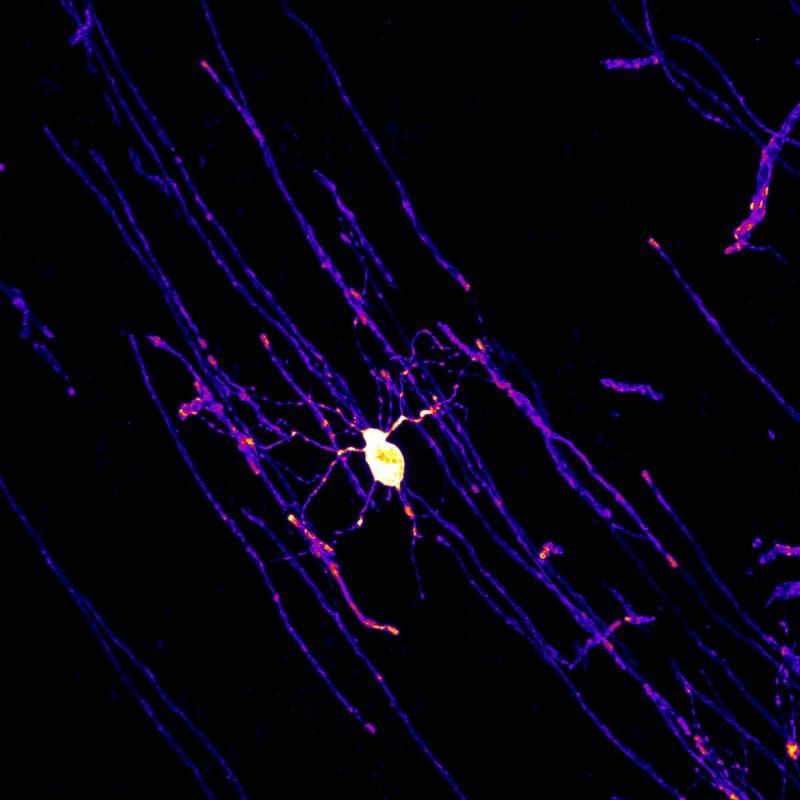Erythropoietin: Growth factor promotes learning and thinking processes in the brain
Researchers at the Max Planck Institute for Multidisciplinary Sciences in G├Čttingen and the Central Institute of Mental Health in Mannheim have discovered a new role for the growth factor erythropoietin (EPO). Known for its function in blood formation, EPO also influences the development and maturation of oligodendrocytes in the brain, specialized cells that envelop nerve fibers with a myelin layer. This layer acts as an insulation, enabling fast and efficient signal transmission and is essential for complex thought processes, emotions and movements. The results, published in Nature Communications, open up new perspectives for therapeutic approaches to cognitive disorders and neurodegenerative diseases.

Oligodendrocytes are responsible for the formation of the myelin sheath, which surrounds the axons of nerve cells and optimizes signal transmission in the brain. Without these cells, cognitive functions would be severely limited. The studies, led by Prof. Dr. Dr. Hannelore Ehrenreich and Prof. Dr. Klaus-Armin Nave, show that EPO promotes the development of these cells from immature precursors to mature, myelin-forming cells. It is noteworthy that not only externally administered EPO has this effect, but also the body’s own EPO, which is produced in the brain during mental or physical exertion. This suggests that exercise and cognitive activity can directly improve brain structure.
Through analyses at the single-cell level, the researchers found that EPO influences numerous genes associated with cell maturation, signal transduction and cognitive abilities. Experiments on mice lacking a specific EPO receptor in mature oligodendrocytes revealed slight changes in the myelin structure of the hippocampus, a region crucial for learning and memory. These animals also showed weaknesses in complex memory tests, which underlines the importance of EPO for cognitive processes.
Since EPO is already approved as a drug and the body produces it itself, there are promising therapeutic options. The findings could form the basis for new treatment approaches for neurodegenerative diseases such as Alzheimer’s or other cognitive disorders. Both drug applications and approaches that activate the body’s own EPO through motor-cognitive training are conceivable. The research results illustrate how closely blood formation and brain function are linked and how versatile the growth factor EPO is. The Central Institute of Mental Health in Mannheim, a leading center for psychiatric research, and the Max Planck Institute in G├Čttingen emphasize the relevance of this discovery for translational medicine and future patient care.
Original Paper:
Editor: X-Press Journalistenb├╝ro GbR
Gender Notice. The personal designations used in this text always refer equally to female, male and diverse persons. Double/triple naming and gendered designations are used for better readability. ected.




